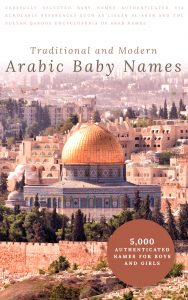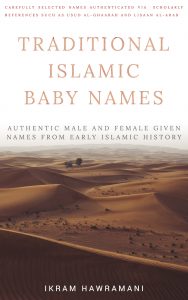There is a hadith which states that the phophet Muhammad(saw) changed the name of a woman from Asiya to Jameelah. It is said that the name Asiya means disobedient and it was her original name even when she was a non believer and did not change her name after accepting the message of Moses (pbuh). Please explain
This is a question asked by a reader like yourself. If there is no reply from our staff, it is because we could not find a satisfactory answer for the question. If you have any information that may help with this question, please share it below.Browse these areas of our website related to the name The Prophet changed the name Asiya to Jameelah …
Categories: Discussions
Most Popular Muslim Names in 2025
Disclaimer
The content on this site does not constitute any type of legal or religious advice. Always consult your local imam or other knowledgeable individuals before making a decision about choosing a baby name.


